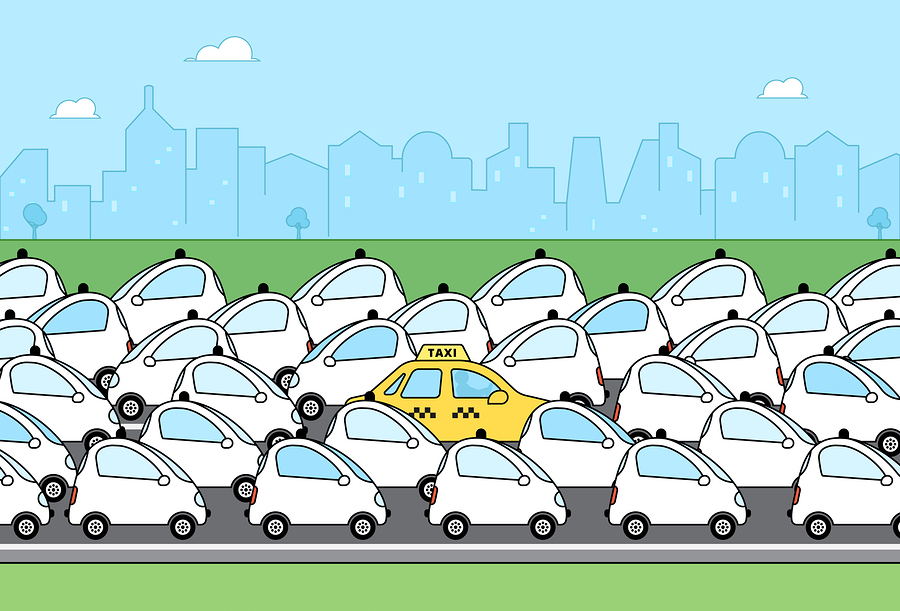
Robohub.org
Transportation as a service (TaaS): A look ahead
SoftBank Group just invested $5 billion in China’s Didi Chuxing, China’s biggest ride-sharing service. Last year Uber sold their China business to Didi resolving (by giving up) all the legal and antitrust investigations it was undergoing in China. In other news, Chris Urmson, CTO of Google’s self-driving car program, left to start a new company and Waymo and Lyft just agreed on a partnership to develop projects and products toward adoption of autonomous vehicle technology.
In a recent lecture at CMU, Chris Urmson (who got his PhD from and taught at CMU), co-founder and CEO of self-driving car startup Aurora and part of the DARPA Urban and Grand Challenge teams, described three major transitions involving self-driving cars and said that “It’s a wonderful time to be a roboticist.” Urmson’s new startup, Aurora, will develop software, hardware, and data, to sell to automakers who want to build their own autonomous cars.
Chris predicts an inevitable shift to EVs, a change in the ownership concept to transportation services, and dramatic changes in manufacturing and jobs in what used to be the auto industry and soon be the ‘transportation services industry.’

Urmson attributes the shift in thought from gradually adding more self-driving features until it becomes time to remove the pedals and steering wheel – the stated posture of most of the auto industry – to using deep learning and simulation training to be able to directly go to self-driving cars – the position taken by Google, Ford, and many of the new startups – as a particularly important contribution made by Google. Later in his lecture, when answering a question about the state of the robotics industry versus the state of the art being developed in universities and research labs such as CMU, he lauded the deep pockets that business – and especially Google – brings to research in general and self-driving cars in particular.
I’ve set this video of his presentation entitled ‘Perspectives on Self-Driving Cars’ to begin at a particularly interesting spot where Urmson describes the transition to transportation as a service. You may want to watch the whole video — it’s very informative:
Chris Urmson: Perspectives on Self-Driving Cars
The traditional transportation model, where a person owns and drives his or her own car, is in flux. The shift to Transportation as a Service (TaaS) radically changes ownership from individual owners to fleet owners and negates the need for so much space devoted to parking and repair facilities. I’ve written about the many other stakeholders going to be affected by this transformation but here’s one very large group that opens up a whole new world of opportunity: what’s going to happen to home garages and carports in the age of TaaS? Who are the stakeholders that are going to benefit just in that little world (think Home Depot)?
Urmson lays out a timeframe for these transformations: fully autonomous cars begin hitting the road within 5 years and become widely accepted within 20 years. PriceWaterhouseCoopers confirms those forecasts and projects nearly 20% of auto industry revenues and 36% of profits will shift from auto sales to services by 2030. Yet, The New York Times just did a story about how China is ramping up their auto industry to become competitive so that they can begin exporting their cars as well as domestically outsell the international automakers producing and selling their cars in China. Is this a big bubble waiting to burst?
Autonomous driving will certainly encounter speed bumps and take longer to implement than many may predict. Regulatory issues seem the most important potential holdups and have to be resolved before any real momentum can begin. Right now states regulate drivers while the federal government regulates manufacturers. How is that going to change? And how quickly? What other unforeseen delays can we expect?
This story is just beginning. As one who has seen, admired, and looked inside Mercedes’ concept self-driving car, I can’t wait to ask Alexa to have one outside my place in 10 minutes so I can go to dinner.
tags: Automotive, Autonomous Cars, autonomous vehicles




